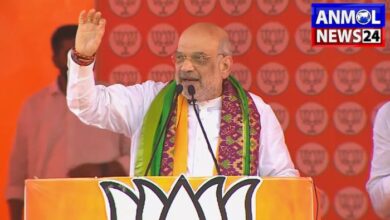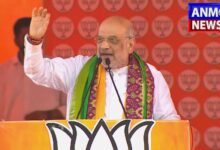History of United Kingdom: History and Important Information of the United Kingdom

History of United Kingdom: The United Kingdom (commonly known as the United Kingdom, UK, Britannia, UK, or Britain) is a developed country in Western Europe. It is a developed country located on the northwestern coast of continental Europe. It is an island country, it spans the British Isles, which includes Great Britain, the northeastern part of Ireland, and several smaller islands. Northern Ireland is the only part of the UK with a land border with another nation and Ireland is a neighboring country of the UK. In addition to the country’s border, the UK is surrounded by the Atlantic Ocean, the North Sea, the English Channel, and the Irish Sea. The largest island, Great Britain, is connected to France by the Channel Tunnel.
Also Read News: Prime Minister of India Narendra Modi: Humble Beginnings: The Early Years
The United Kingdom is a constitutional monarchy and unitary state consisting of four countries: England, Northern Ireland, Scotland and Wales. It is governed by a parliamentary system whose government sits in the capital London, but has three devolved national administrations, Belfast, Cardiff and Edinburgh, the capital of Northern Ireland, Wales and Scotland, respectively. Jersey and the Guernsey Islands, which are collectively known as the Channel The island, called the Isle of Mann, is a monarchical dependency of the UK and not part of the UK. [20] In addition, the UK has fourteen overseas dependent territories, the British Empire, which was at its peak in 1922. It covered about a quarter of the world’s area and was the largest empire in history. British influence can still be seen in the language, culture and legal system of its former colonies. (History of United Kingdom)
Important information of United Kingdom
There are four countries in the United Kingdom – England, Scotland, Wales and Northern Ireland. The last three countries have devolved administrations, each with varying strengths, with their respective capitals, Edinburgh, Cardiff and Belfast. Nearby Man Island is not part of the United Kingdom.
Northern Ireland is the only part of the UK that shares a land border with another nation. In addition to this land surface, the United Kingdom is surrounded by the Atlantic Ocean, which is bordered by the North Sea to the east, the English Channel to the south, and the Celtic Sea to the south-southwest, giving it the 12th largest coastline in the world. The Irish Sea lies between Great Britain and Ireland. With an area of 2,42,500 km, the United Kingdom is the 78th largest country in the world and the 11th largest country in Europe. With a population of 65.1 million, it is the 21st largest country in the world by population. It is considered the fourth most densely populated country in the European Union. The capital and largest city of the United Kingdom is London, which is also a global city and financial center, home to 10.3 million of the country’s total population. It is the fourth largest city in Europe and the second largest city in the European Union. Other major cities in the United Kingdom include Manchester, Birmingham, Leeds, Glasgow and Liverpool. The United Kingdom is the world’s sixth largest economy by symbolic GDP and the seventh largest by purchasing power parity, as well as a developed country. It was the world’s first industrialized country and a world leading power during the 19th and 20th centuries. But the economic cost of two world wars and the collapse of the empire in the late 20th century undermined its leading role in global affairs. Yet the UK remains a major power due to its strong economic, cultural, military, scientific and political influence. It is a nuclear power and the fourth highest defense spender in the world. It is a member of the European Union, holds a permanent seat on the United Nations Security Council and is a member of the Commonwealth of Nations, the G8, the OECD, NATO and the World Trade Organization.
There is a constitutional monarchy system and the Queen is the head of state, but her position is only symbolic. The British Parliament has two houses – the House of Lords (upper house) and the House of Commons (lower house). There are 574 members in the House of Lords and 651 in the House of Commons. The reign of the Parliament is for 5 years. Most of the power of the House of Lords was taken away in 1911. The executive power of the emperor is in the cabinet, which is headed by the Prime Minister. The unification of England took place in the 10th century. In 1284 the union of England and Wales was formed. Great Britain was declared by the Act of Union of 1707 by England and Scotland. In 1801, Great Britain and Ireland joined together to form a federation. Ireland was partitioned in 1921 by the Anglo-Irish Treaty. The six Northern Ireland counties chose to remain in the United Kingdom as Northern Ireland. In 1927 the current name of the country was adopted as the United Kingdom of Great Britain and Northern Ireland.
History of united kingdom
1st century BC Britain’s contact with continental Europe was established for the first time due to the Roman invasion. Seven major Anglo-Saxon kingdoms were established in Britain and the natives settled in Wales and Scotland. In the 10th century, the country was fully unified under the leadership of the King of Wessex.
On 1 May 1707, the United Kingdom of Greater Britain was formed by the political union of the Kingdom of England (which included Wales) and the Kingdom of Scotland. This treaty was agreed on 22 July 1706. And then both the Parliament of England and the Parliament of Scotland ratified it by an Act of Union in 1707. Almost a century later, the Kingdom of Ireland, which had come under English control by 1691, merged with the Kingdom of Great Britain through the Act of Union 1800 to form the United Kingdom. Although England and Scotland had separated before 1707, they had been in union personally since the union of the monarchy in 1603, when King James VI of Scots inherited the throne of the Kingdom of England and Ireland and moved his court from Edinburgh to London. took away.
During the reign of Henry II (1154-1189 AD), the power of the feudal lords declined and the monarchy was strengthened. But in 1215 AD, Emperor John (1199-1216 AD) was forced to sign the Magna Carta. Magna Carta gave wide rights to the people. During the 13th and 14th centuries, the new House of Parliament, the House of Commons, was established, which was given the power of taxation. Due to the assertion of the throne of France by Edward III, there was a 100-year war (1338–1453) between England and France, which caused heavy losses to Britain. During the reign of Emperor Henry VIII (1509–1547 AD), the Church of England Declared himself independent from the Roman Catholic Church. Elizabeth I (1558–1603) founded the Church of England. England emerged as a global power during the reign of Elizabeth. In 1642, civil war broke out between the Stuart Emperor Charles I and the Parliament. Charles was defeated in the battle and was given the death penalty. After this the monarchy came to an end and the government was established under the leadership of Lord Protector Oliver Cromwell. After the death of Cromwell, the government collapsed and in 1660 Emperor Charles II ascended the throne. James II (1685–1688) was deposed by the Revolution and the supremacy of Parliament was established. Scotland was merged with England in 1707 by the Act of Union. During 1775-1781, British ambitions suffered a severe setback in America and America became independent from the British Empire. In France, Britain clashed with France during Napoleon’s reign and ended with Napoleon’s defeat at the Battle of Waterloo in 1815. (History of United Kingdom)
After a period of global economic recession and industrial disputes in the 1970s, the 1980s saw the arrival of substantial North Sea oil earnings and economic growth. Margaret Thatcher’s presidency marked a significant shift from the post-war political and economic consensus; A path that continued since 1997 under the new Labor governments of Tony Blair and Gordon Brown.
The United Kingdom was one of the 12 founding countries of the European Union beginning with the signing of the Maastricht Treaty in 1992. Prior to this, since 1973 it has been a precursor member of the European Economic Community (EEC) of the European Union. The current Labor government’s approach towards integration with the organization is mixed, with the official opposition, the Conservative Party, favoring some of the powers and capabilities transferred to the European Union. The end of the 20th century saw several changes in the governance of the UK with the establishment of devolved national administrations for Northern Ireland, Scotland and Wales after a pre-legislative context. (History of United Kingdom)




